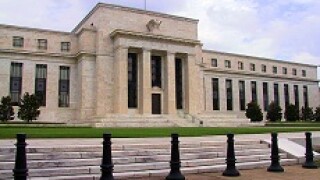UK Sovereign
-
China had no problem selling its first offshore renminbi bond outside of Hong Kong as a strong showing from central banks pushed the deal to be more than twice subscribed.
-
China attempted to position its upcoming offshore renminbi sovereign bond as a sign that markets have full confidence in the country’s economy at a launch for the deal at a ceremony in London today.
-
UK investors showed no jitters on Tuesday about a potential UK exit from the European Union, as the sovereign’s last syndication before the EU membership referendum drew a book of more than £15bn — a record for an inflation-linked Gilt syndication.
-
China’s Ministry of Finance has confirmed it will issue an offshore renminbi bond in London with the trade expected to launch soon.
-
The Boston Retirement System (BRS) is suing five banks and four traders for allegedly conspiring to manipulate bid-ask spreads on SSA debt traded in the secondary market, increasing their profit at the expense of their clients.
-
The futures-implied probability of a US rate hike in June surged this week after hints by Federal Reserve officials.
-
The prospect of the UK voting to leave the European Union has become the foremost focus of fund managers and volatility traders, even as the latest poll on Brexit gave the ‘Remain’ campaign an 18 point lead over ‘Leave’ — prompting the pound to rally to its highest point against the dollar since May 3.
-
The UK Debt Management Office could launch a new five year conventional Gilt in the second quarter of its 2016-17 financial year and is seeking comment from investors and banks on the proposal.
-
The UK Debt Management Office has picked the banks that will run its next syndication, scheduled for the week beginning May 23.
-
Can’t decide on — or can’t fathom — a good reason for the latest market movement or political development? Then try our patented Blame it on Brexit Solution™!
-
China’s Ministry of Finance (MoF) is set to issue its debut offshore renminbi (CNH) government bond in London as early as this month, with one Chinese bank and one foreign bank mandated on the deal.
-






